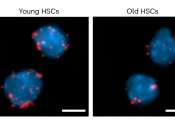Researchers find spaceflight may be associated with DNA mutations, increased risk of heart disease and cancer
Astronauts are at higher risk for developing mutations—possibly linked to spaceflight—that can increase the risk of developing cancer and heart disease during their lifetimes, according to a first-of-its kind study from ...








